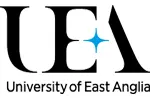

the United Kingdom
University of East Anglia (UEA)| The award | How you will study | Study duration | Course start | Domestic course fees | International course fees |
|---|---|---|---|---|---|
| MA | Part-time | - | - | - | - |
Study
The MA in Language in Intercultural Communication provides a broad approach to the study of language as both a cultural resource and a cultural practice by making use of a variety of different analytic approaches, from discourse analysis and ethnolinguistics, to semiotics and cross-cultural pragmatics. The course is designed for students of English and other language backgrounds seeking to deepen their knowledge of language as a cultural object. The course is also ideals for professionals, such as language teachers.
Structure
The structure of the programme allows students to develop their own interests within a structured framework of theoretical training. Some flexibility is built into the course by allowing one module to be chosen from any relevant MA module offered within the Faculty of Arts and Humanities. Teaching is mainly through the media of seminars and individual dissertation supervision. Assessment is on the basis of coursework and a final dissertation.
Teaching
The School of Language and Communication Studies is a vibrant environment with a focus on issues relating to contemporary language and translation. The size of the School allows for more personal staff-student contact and individual academic support than in many larger institutions, combined with a reputation for cutting edge of critical linguistics research, ensuring our graduates are well-informed and highly employable.
Employability
Students gain a number of highly desirable skills for professional life, such as the ability to read and utilise research literature, independent research, appropriate methodologies, data collection, analysis, synthesis and evaluation , presentation skills (oral and written) and communication skills. The programme also provides a foundation for further postgraduate study at MPhil and PhD level.
Below are some suggested courses at other providers that you may also be interested in:
Bachelor of Business Administration - Data Analytics BBA
University of New York in Prague
Find out moreProfessional LLM in Canadian Common Law LLM
Osgoode Professional Development, York University
Find out moreIf you do not meet the entry requirements for this course then consider one of these postgraduate preparation courses from another institution:
There are 413 other courses listed from University of East Anglia (UEA). A selection of these are displayed below:
Adult Literacy, Lifelong Learning and Development: International Perspectives MA
University of East Anglia (UEA)
Find out moreJoin the StudyLink email list and never miss a chance to turn your study abroad dreams into reality!

Find out more about studying in the United Kingdom